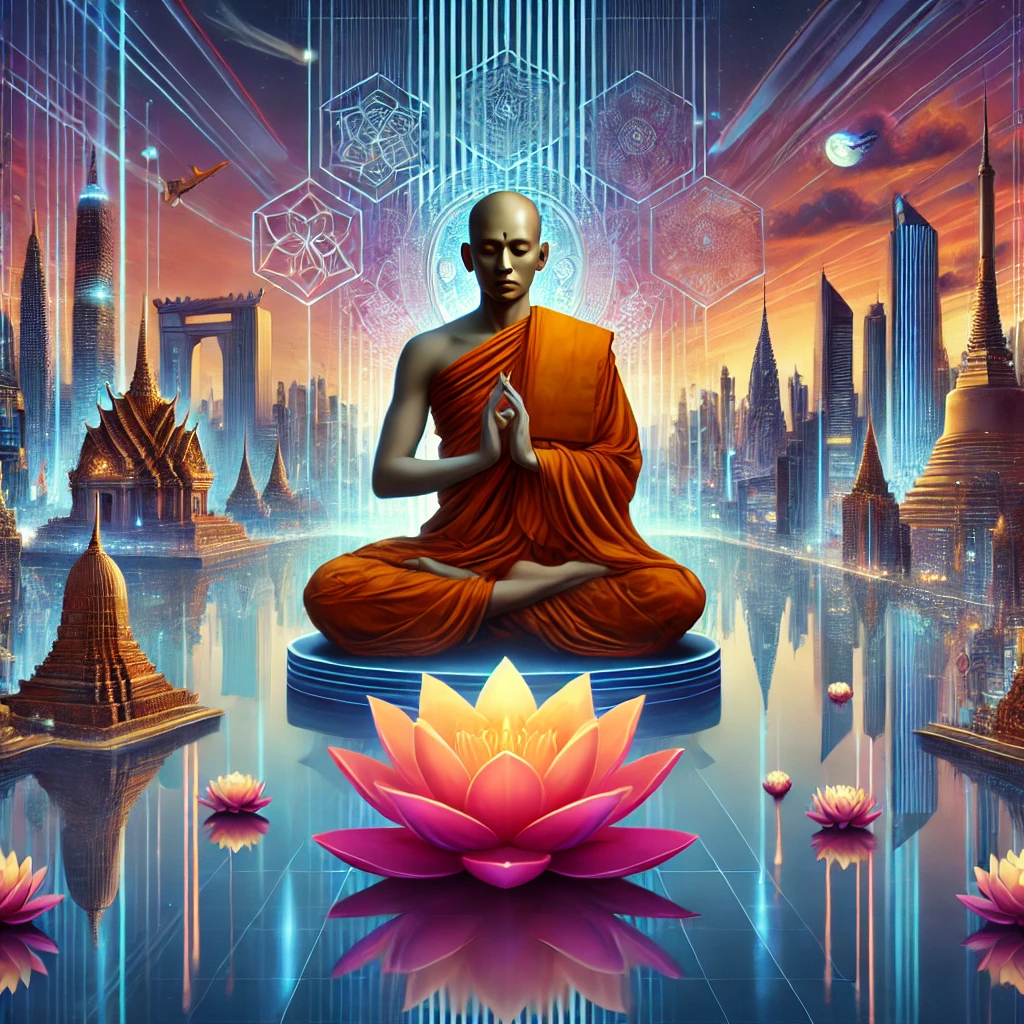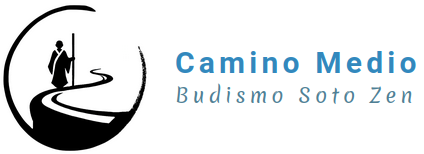⏱️ Estimated reading time: 4 min
In a world marked by technological acceleration, environmental crises and social inequalities, Buddhism offers us a profoundly relevant vision. Your ethical principles, its emphasis on interdependence and compassion, and its community practice provide a framework for action and reflection to address the global challenges of the 21st century. This article explores how Buddhism can play an important role in building a sustainable and compassionate future., while highlighting the importance of overcoming our own biases and limitations to apply these teachings authentically and effectively.
Buddhism is based on universal ethical principles explained mainly in the Bodhisattva precepts, that offer an ethical compass to navigate the complex challenges of our time. These principles cultivate a way of life that reduces suffering and foster harmony between us and our environment.
For example:
- Non -violence in response to the environmental crisis
The first Buddhist precept, refrain from harming living beings, acquires an essential dimension against current ecological degradation. Habitat destruction, The exploitation of resources and the suffering of species reflect our disconnection with the natural world. Buddhist ethics helps us to reconsider our consumption habits and our priorities, promoting a respectful and sustainable perspective. The climate crisis is not just an environmental problem, but also a manifestation of greed, hatred and ignorance (the “three poisons” according to Buddhism). Addressing these internal roots of suffering is as essential as external solutions. - Active Compassion in the Face of Inequality
The principle of karuna (compassion) urges us to respond to suffering, not from passivity, but with concrete actions that benefit others. In the 21st century, This includes fighting poverty, support marginalized communities and promote social justice. For example: Buddhist compassion can inspire more equitable economies, where collective well-being is prioritized over excessive profit, addressing structural inequalities that perpetuate suffering.
To apply these principles in a realistic way, We must be attentive not to idealize Buddhism as a unique or perfect solution. Recognize that your teachings are complementary to other traditions and points of view, allows us to integrate them with humility and openness.
Buddhism is not just an individual practice; the sangha, or spiritual community, It is an essential pillar of its teachings. In a world fragmented by individualism, Buddhist communities can become cooperation spaces, Resilience and collective action.
For example:
- Solidarity and collective action models
Sanghas can serve as examples of how to work together for common well -being, promoting solidarity values in the face of competitive and insulating tendencies of the modern world. Communities that organize collective practices and meditation retreats can inspire significant change in their local and global environments. - Interreligious and Intercultural Dialogue
In a globalized world, sanghas have the opportunity to collaborate with other traditions and social movements. This dialogue not only enriches Buddhist practice, but rather strengthens the capacity of communities to address universal problems.
The challenge of contemporary Buddhism is to connect introspective practice with social action. This connection is at the heart of the practice of bodhisattva, who is committed to working for the good of all beings.
The role of Buddhism in the 21st century is not simply to preserve its traditional teachings, but adapt creatively to respond to contemporary challenges. Buddhist ethical principles offer a clear guide for uncertainty times, while Buddhist communities can become resilience and transformation centers.
However, This path requires humility, Opening and the willingness to question even our most entrenched interpretations. By promoting a constructive dialogue with other spiritual traditions, We can enrich our practice and strengthen our impact.
The invitation is clear: Work together, as individuals and as a community, To build a world where all beings can deploy all their potential. In a century full of challenges, The commitment to ethics, Compassion and collective action can be the lighthouse that guides our society towards a brighter future.

